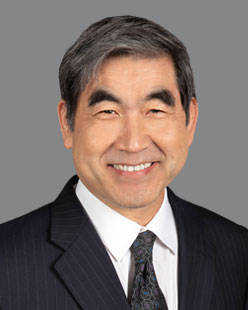
Case Manager: Joanna Barron
Hon. Nathan D. Mihara is a retired Associate Justice of the California Court of Appeal, Sixth Appellate District. After serving over three decades as a judicial officer, including 27 years for the Court of Appeal and 8 years for the Santa Clara County Superior and Municipal Courts, Justice Mihara joined ADR Services, Inc. to resolve disputes as a mediator, arbitrator, and referee.
Justice Mihara began his legal career as a civil lawyer in private practice. He then joined the California State Attorney General’s office as a Deputy Attorney General, serving in the criminal division prosecuting appeals and writs. During this time, he handled numerous cases in the trial courts and hundreds of appeals which included two cases he successfully argued before the California Supreme Court. In 1985, Governor George Deukmejian appointed him to the Santa Clara County Municipal Court, where he served for three years before his elevation to the Superior Court in 1988.
As a Judge of the Santa Clara County Superior Court, Justice Mihara’s assignments covered civil trials and settlement conferences, law and motion, felony trials, family law, juvenile law, and probate matters. In 1993, Justice Mihara was appointed by Governor Pete Wilson to be an Associate Justice on the California Court of Appeal, Sixth Appellate District. Over the course of his 27 years at the Court of Appeal, he has authored over 250 published opinions and reviewed thousands of civil and criminal appeals and extraordinary writ matters.
Justice Mihara is a member of the California Judges Association and served as President of the California Asian-Pacific American Judges Association from 2012-2013. He has co-chaired the Santa Clara County Bar Association’s Appellate Section and has served as part of its Law Related Education Committee and Minority Access Committee. He was a Member of the Board of Directors of the Sentencing Alternatives Program from 1985 to 2021 and President of the Board for many years.
In addition, Justice Mihara is a frequent lecturer and panelist for many judicial education programs, bar association seminars, and law schools, including Hastings College of the Law, UC Davis King Hall Law School, UC Berkeley Law, Stanford Law School, and Santa Clara Law School. He has taught on issues of access and fairness in the legal profession and ethics in judicial administration. He has also made presentations to various local schools for Constitution Day and Read Across America.
Justice Mihara received his B.A. degree in Economics from the University of Washington and his Juris Doctorate from Hastings College of the Law. He was admitted to the California bar and to practice before the federal Ninth Circuit Court of Appeals in 1976. He became a member of the bar of the United States Supreme Court in 1980.
He has been active in his community with Little League Baseball, the American Youth Soccer Association and his church. He is married and has one son.
CALIFORNIA COURT OF APPEAL, San Jose, CA
Associate Justice, Sixth Appellate District, 1993-2020
SUPERIOR COURT OF CALIFORNIA, SANTA CLARA COUNTY, San Jose, CA
Judge of the Superior Court, 1988-1993
MUNICIPAL COURT OF CALIFORNIA, SANTA CLARA COUNTY, San Jose, CA
Judge of the Municipal Court, 1985-1988
“Justice Mihara successfully mediated an employment dispute. His pre-mediation Zoom meeting was particularly helpful. We had a really thoughtful conversation about the different parties’ perspectives and Justice Mihara put himself in the respective parties’ shoes and gave me his impressions. We get so entrenched in our own party’s perspective that sometimes it’s instructive to take a step back and to think about it from a different angle.”
“I used Justice Mihara as an arbitrator in a case that settled before it got to a hearing. He made a ruling on a sensitive discovery issue, and that ended up sparking settlement in the dispute. What you often see in arbitration is you have these arbitrators who split the baby and give a little bit to this side and a little bit to that side, but Justice Mihara actually took a stance and said, ‘Ok, one side is right here.’ And I really appreciated that he took the time and actually made a decision instead of kicking the can down the road and saying, ‘I’ll give you a little bit here. I’ll give the other side a little bit here.’”
“I appeared a couple of times before Justice Mihara at the 6th District Court of Appeal and recall one case in which he ruled against me. The ideal oral argument for an appellate lawyer is a conversation. It’s not an argument. It’s not a presentation. It’s a dialogue, and I recall that’s the kind of exchange we had. He ruled against me, and he was giving me a rough time, but he wasn’t unpleasant. He was just pushing me the way any justice should when they’re skeptical about your position. I used him for argument preparation as part of a moot court panel made up of three former appeals justices from ADR Services, Inc. He brought that same brand of professional and courteous judicial temperament to those moot court proceedings. He got into the case, he understood it, he asked good questions, he grabbed onto the issues and the difficulties. It was a very productive moot court, in part, because of his questioning.”
